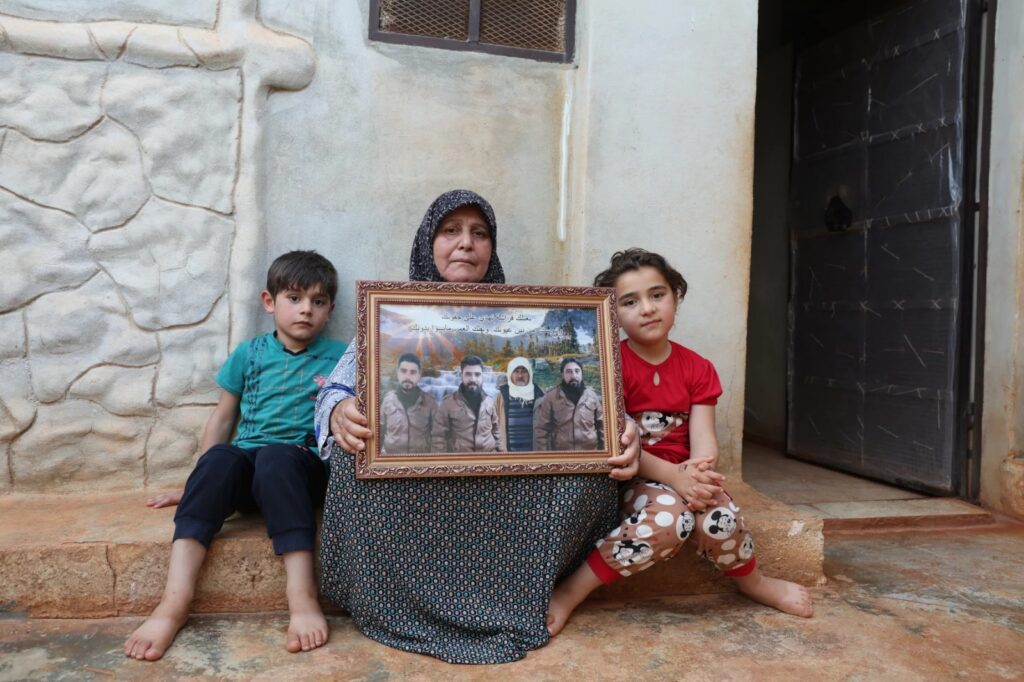
Today’s news round on Syria covers critical developments shaping the region’s complex landscape. The Pentagon is reinvestigating claims of civilian casualties during its 2019 raid targeting ISIS leader Abu Bakr al-Baghdadi, prompted by new accounts and congressional pressure. In eastern Syria, pro-government fighters, backed by Iran, launched attacks on U.S.-supported positions, resulting in fatalities and escalating tensions in Deir el-Zour. Meanwhile, the Atlantic Council’s report by JP Reppeto examines the possibility of delinking northeast Syria from the PKK, a significant point of contention between the U.S. and Turkey, as both nations seek to address the deep-rooted PKK influence while maintaining regional stability and combating ISIS.
The Pentagon is reinvestigating if troops killed civilians in its 2019 Baghdadi raid
The U.S. is conducting a new investigation into claims that Syrian civilians were killed and maimed in a U.S. strike during its high-profile raid five years ago targeting ISIS founder Abu Bakr al-Baghdadi, NPR reported.
The repeat review comes after NPR reporting of new accounts that challenged the Defense Department’s original account of the Oct. 26, 2019, operation. Several Democratic members of Congress also called on the Pentagon last year to reexamine the case following NPR’s reporting.
In a statement, U.S. Central Command told NPR two weeks ago that it is conducting a “detailed review” of the operation and is “nearing the end” of its investigation. It said the additional review would make a “final determination” of the civilian status of the survivor and victims of the strike. This is the second review the U.S. has conducted into the 2019 raid.
“I think it’s extremely significant that, given how much the Baghdadi raid was celebrated, that the Pentagon is now taking this step to do a new investigation,” said Joanna Naples-Mitchell, a New York-based lawyer with the Zomia Center, which advocates for civilians harmed in military operations. She is representing the Syrian survivor.
Pro-government fighters attack areas of US-backed fighters in east Syria; 2 killed
Associated Press reported that fighters backed by Iran and the Syrian government have attacked areas controlled by U.S.-backed fighters in eastern Syria, killing at least two people and wounding others, the main U.S.-backed force in the war-torn country and an opposition war monitor said Wednesday.
The clashes in Syria’s eastern province of Deir el-Zour, which borders Iraq, came amid high tension in the region following last week’s killings of a top military commander of Lebanon’s militant Hezbollah group in Beirut and the leader of the Palestinian Hamas group Ismail Haniyeh in Iran. Israel was blamed for both attacks, and Iran and Hezbollah have vowed to retaliate.
The clashes in eastern Syria are the most intense in nearly a year in areas where hundreds of U.S. troops have been deployed since 2015 to help in the fight against the Islamic State group.
Syrian government forces and Iran-backed fighters are deployed on the west bank of the Euphrates River in Deir el-Zour, while members of the U.S.-backed and Kurdish-led Syrian Democratic Forces control the east banks of the river.
The SDF said in a statement that “Syrian regime-backed mercenaries” attacked the villages of Dhiban, Latwa and Abu Hamam starting late Tuesday. It added that fighting was ongoing Wednesday as the SDF tries to bring the situation under control.
Can Northeast Syria Delink from the PKK?
The Atlantic Council published a report by JP Reppeto exploring the complex dynamics in northeast Syria, focusing on the possibility of delinking the region from the Kurdistan Workers’ Party (PKK). A decade after the US began its intervention in the Syrian crisis, a significant point of contention remains between Turkey and the United States: support for the Democratic Union Party (PYD) and its armed wing, the People’s Defense Units (YPG), in northeast Syria. Both are linked to the PKK, which Turkey designates as a terrorist organization due to its long-standing conflict with Ankara.
The report says that Turkey demands that the US stop supporting the PYD and YPG because of their PKK ties. However, these groups are central to the US-backed Syrian Democratic Forces (SDF), essential in combating ISIS. The PKK has deeply infiltrated the governance and military structures of northeast Syria, leading to various issues, including Turkish attacks, undemocratic governance, corruption, and clashes in Deir ez-Zor.
To resolve this, the US and Turkey must negotiate a strategy to delink the SDF and the Democratic Autonomous Administration of North and East Syria (DAANES) from the PKK. This is complex, given the PKK’s entrenched presence and the necessary concessions from both sides. The PYD and YPG were heavily supported by veteran PKK members who have held significant roles since the Syrian civil war began. The PKK’s presence remains strong, with influential kadros (veteran operatives) controlling key aspects of local administration and military.
According to the report, delinking the PKK from northeast Syria involves overcoming substantial obstacles. The US and Turkey need to empower local Syrian elements while addressing the vacuum that removing PKK personnel would create. While difficult, a potential agreement between the US and Turkey to reduce PKK influence in northeast Syria could benefit all parties involved. It could stabilize the region, improve US-Turkey relations, and empower local Syrian governance. However, achieving this requires significant diplomatic effort and strategic compromises from both the US and Turkey.
